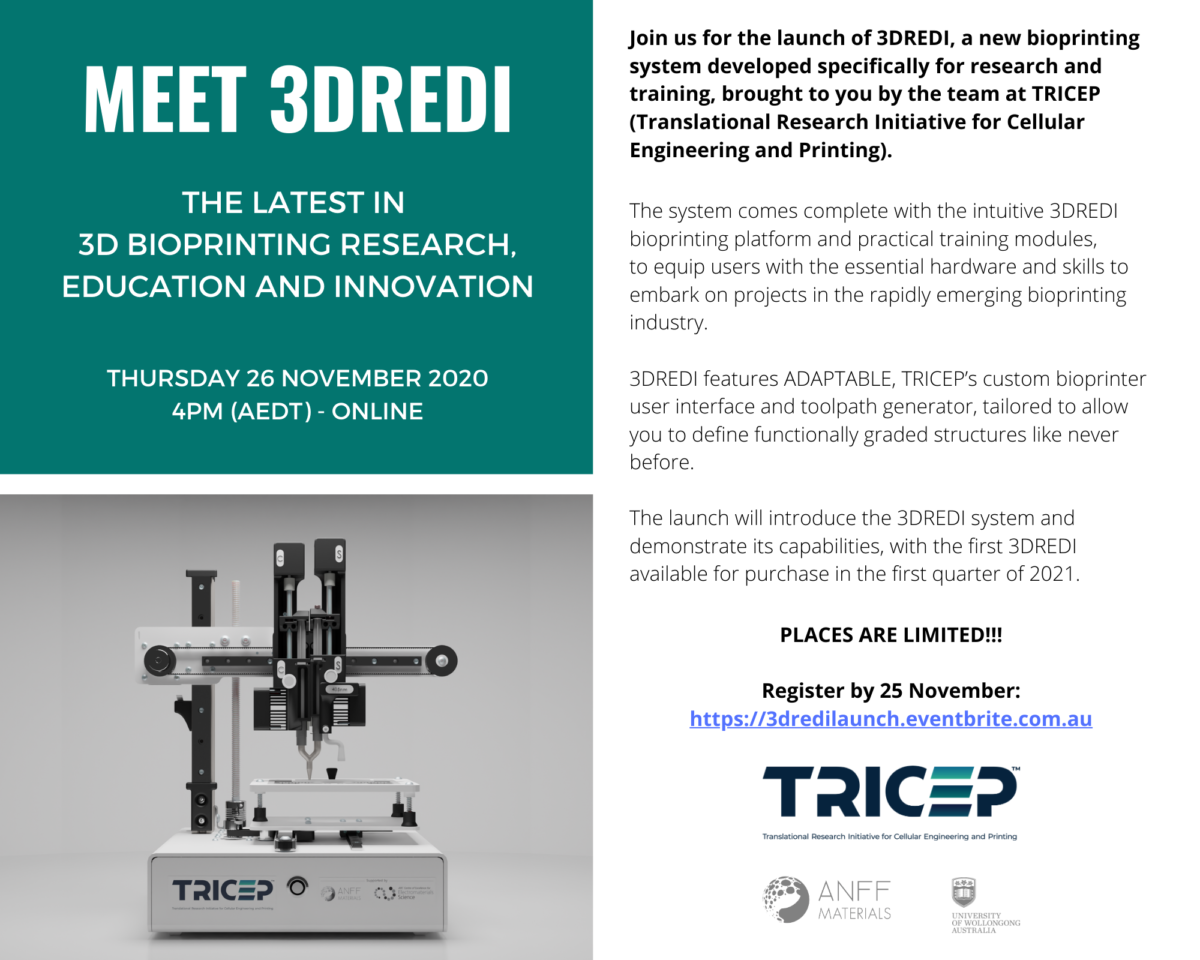News
3D printing bone tissue
Jun 28 2022
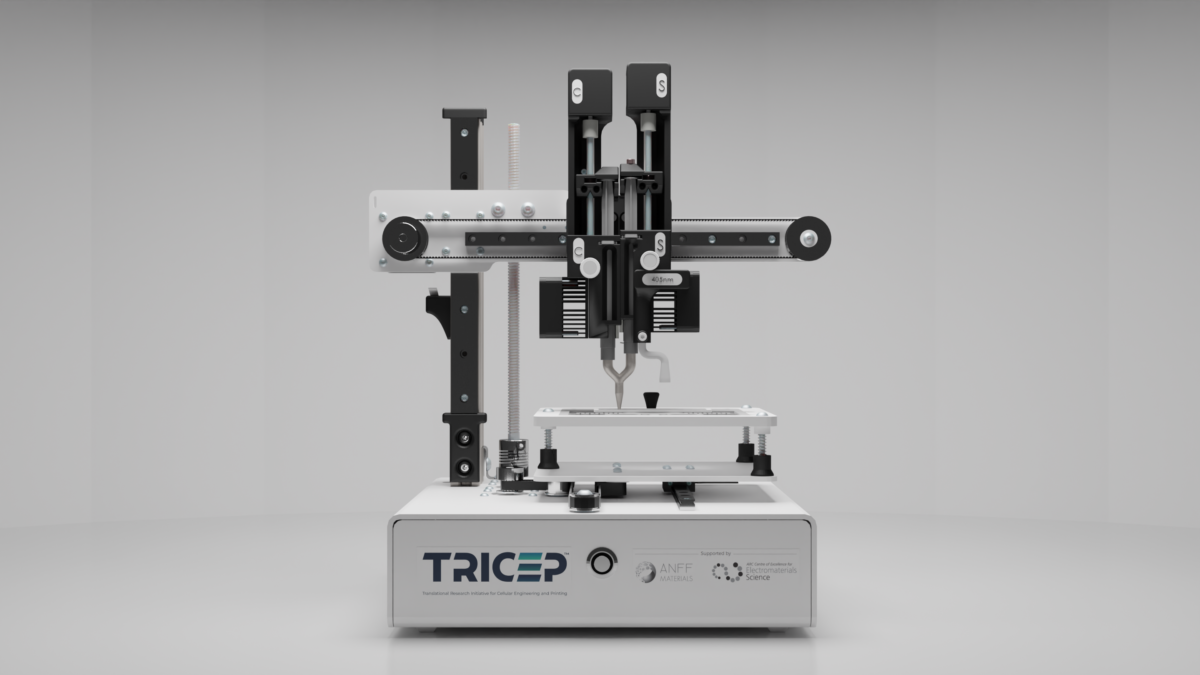
With the help of the ACES and Australian National Fabrication Facility (ANFF) partnership, the Translational Research Initiative for Cell Engineering and Printing (TRICEP) – launched in 2018 – has been working to meet a range of clinical needs. This partnership has enabled TRICEP to bring about real advances to tackle significant medical challenges. We continue to highlight our TRICEP initiatives and technology – this time taking a closer look at 3D REDI, which is set to launch online this week on on Thursday, 26 November.
3D REDI is a bioprinting platform aimed at educating the next generation of biofabricators and serving as a biomaterials research tool. The integrated bioprinting platform and control software offer printing functionality that economically surpasses the capabilities of current market leaders. The intuitive and flexible platform has been developed with the input of world leading clinicians, whilst focused on operation at the forefront of research and training.
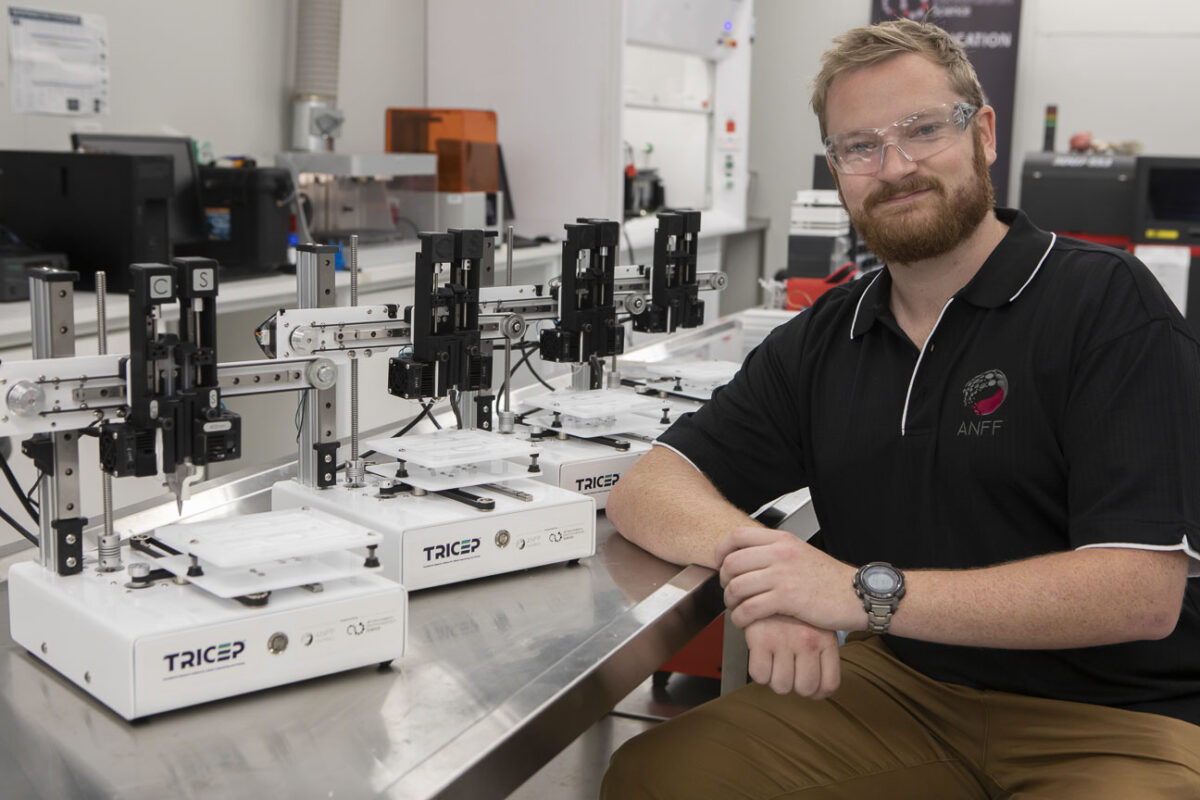
The 3D REDI system has been configured to incorporate two independent mechanical extrusion units. These units control extrusion and retraction of 3cc syringes containing bioinks for printing. Active temperature management of bioinks, and in turn viscosity control for structure retention during printing, are achieved using independent Peltier based thermal control units. An integrated variable intensity 405nm light source provides tunable crosslinking of materials.
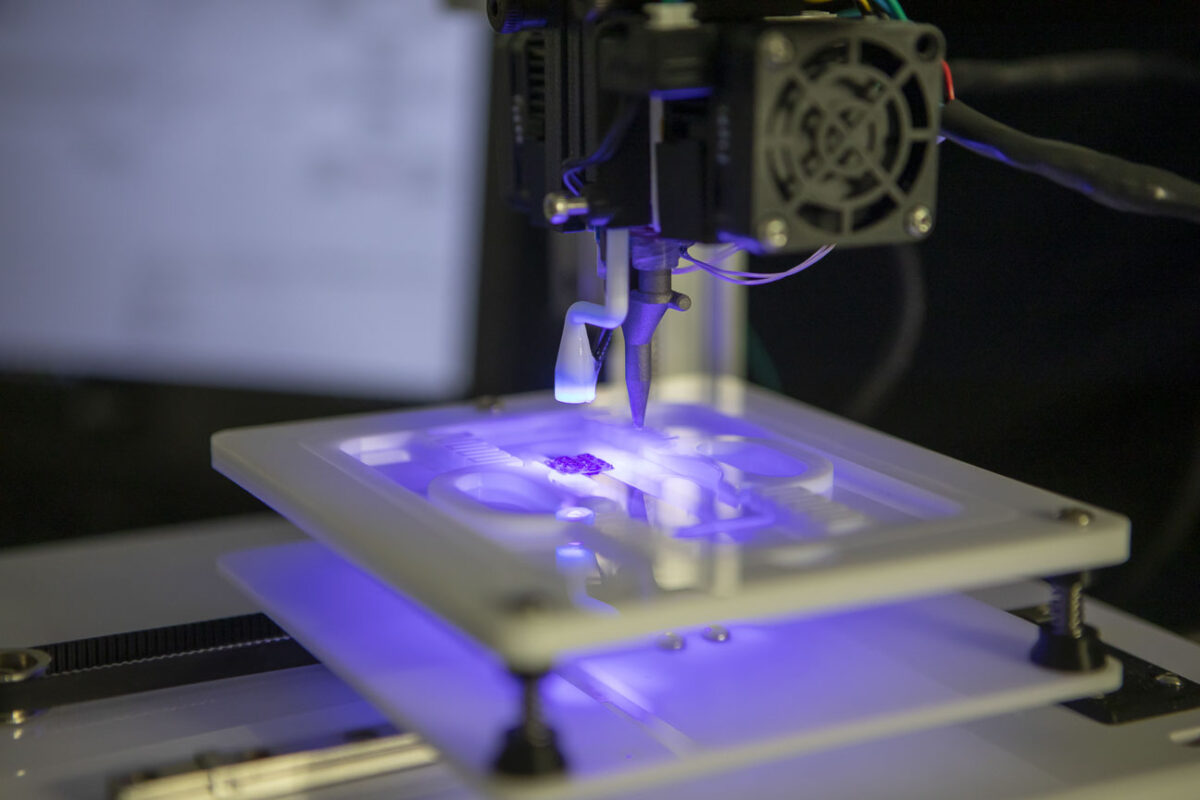
Additive fabrication has, over the last ten years, had a profound impact on materials research, opening new pathways to construct novel structures and enable the undertaking of fundamental research. However, adaptation of these systems to specific clinical needs is often not possible, leading to the need for new hardware to be envisaged, developed and tested. The greatest examples of this need have been seen in the bio-additive fabrication space, where the sensitivities of the carrier materials, bio-factors, and live cells, as well as the working environment, have required the development of new means of producing multiple material structures over micro to macro length scales.
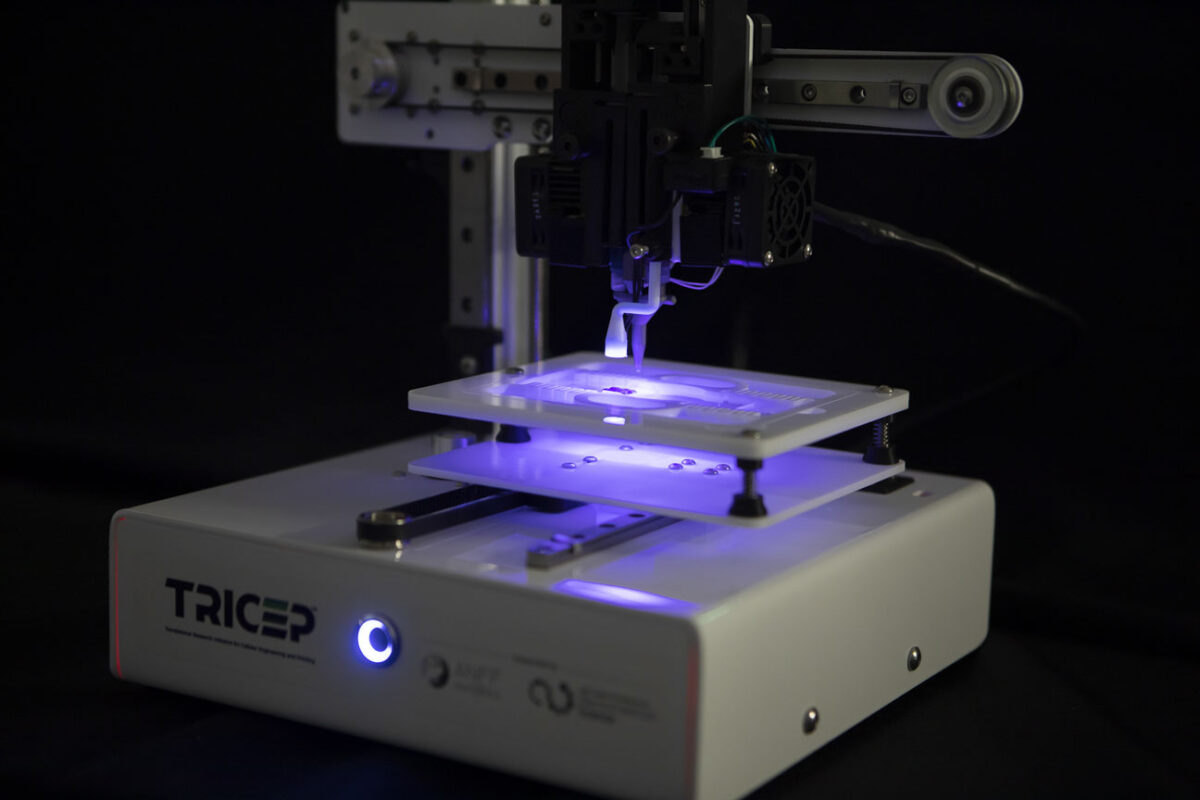
Because the platform is a research and education tool, 3D REDI has been developed with a suite of interactive printing and characterisation tutorials. These are in place to familiarise educators and students with the capabilities of multi-material bioprinting and are packaged with example cases to get users started on their own research.
The system allows users to put down multiple materials simultaneously and has necessitated the development of bespoke software tools to reliably access the novel co-extrusion capabilities of this system.
Along with the input from world leading clinicians, 3D REDI was developed at TRICEP by Director Prof Gordon Wallace, Associate Director A/Prof Stephen Beirne, Fabrication Technician Cameron Angus and Software Engineer Brodie Leeson.
The future is exciting for 3D REDI. Scalable production of the printer at TRICEP is currently in the works and the process of deploying the units to partner labs around Australia and the world is also underway.
Join us for the online launch of 3DREDI on Thursday, 26 November 2020 at 4pm (AEDT). Register here.
